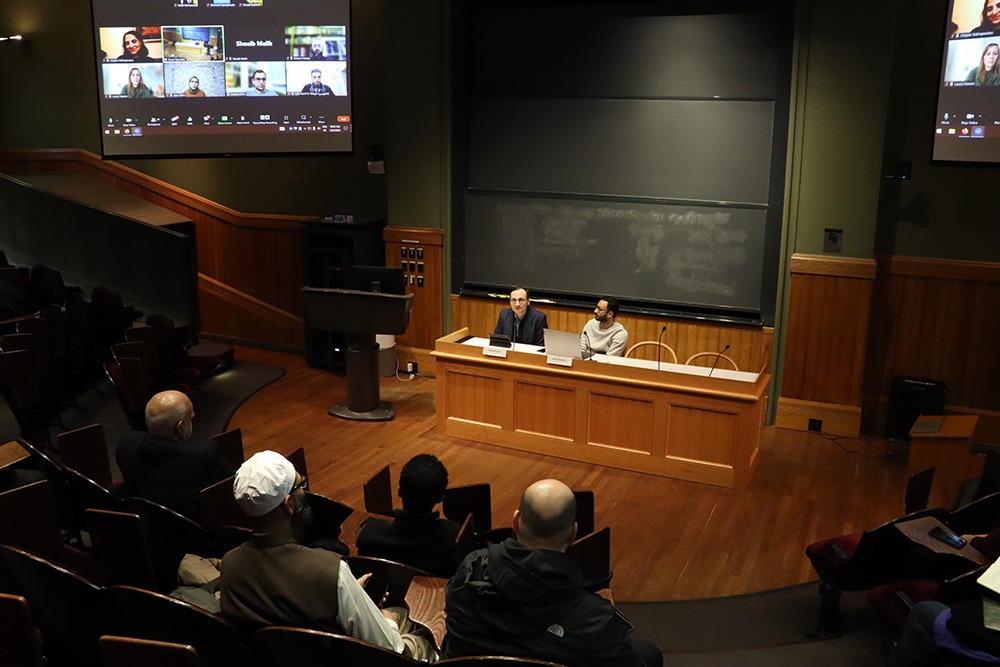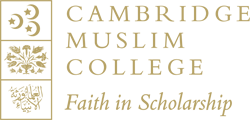Cambridge Muslim College’s lecturers and research fellows presented their latest research at The American Society of Islamic Philosophy and Theology’s fourth annual conference, held on December 2 – 4, 2022 in Cambridge, Massachusetts (US) and co-hosted by Harvard University and Brandeis University. Over the three-day conference, some forty researchers presented papers exploring diverse topics in philosophy, theology (kalām), Islamic legal theory (usūl al-fiqh) and other intellectual trends within and beyond the philosophical realm.

Dr Najah Nadi (Cambridge Muslim College Lecturer) presented a paper entitled “The Late Classical Conception and typology of Dalīl”. Her paper explores the conception and typology of proof (dalīl) within late classical Islamic works of theology, legal theory, logic (manṭiq) and philosophy (ḥikma). Her study of proof (dalīl) in these diverse disciplines demonstrates the unprecedented cross-fertilisation of means and modes of knowledge verification (taḥqīq) relating to both the occasionalist and foundationalist realms. To illustrate her thesis, she relies on the works of the 14th century theologian-jurist Saʿd al-Dīn al-Taftāzānī (d.792/1390).
In a joint paper entitled “Al-Mātūrīdī’s Metaphysics of Causality: A Distinctive Concurrentist Model”, Dr Ramon Harvey (Cambridge Muslim College Lecturer and Head of Research) and Dr David Solomon Jalajel (Consultant with the Prince Sultan Research Institute at King Saud University, Saudi Arabia) address the topic of causality in the kalām of Abū Manṣūr al-Māturīdī (d. 333/944). Their study proposes a distinctive concurrentist Divine Action Model (DAM) which is based on the Divine attributes of existentiation (takwīn) and wisdom (ḥikma), reinforced by an accident-object dispositional theory for the origin of the world, time, and human free will.
Following a similar trajectory, yet within a different scientific domain, Dr Safaruk Chowdhury’s (Cambridge Muslim College Research Fellow) paper “Quantum Mechanics, Incompleteness of Physical Reality and Islamic Occasionalist Idealism” investigates the relevance of Islamic occasionalism to modern discourses on quantum physics and a naturalist understanding of the world, a proposition which could be regarded as highly improbable and inadequate due to its physical ontological limitations. Consequently, he argues that a theistic-based interpretation best explains the reality, persistence and coherence of natural phenomena.
Both Dr Harvey and Dr Chowdhury also took part in a special book panel about the forthcoming collected volume Eight Classical Islamic Frameworks for Islam and Science (Routledge), edited by Dr Shoaib Malik, for which they have contributed chapters. This book gathers an international group of scholars to explore theological questions relevant to scientific engagement through the ideas of varied premodern Islamic thinkers. The book will be Open Access and will feature outreach videos for each chapter. These aspects of public engagement are supported by an award managed by Cambridge Muslim College, with funding coming from the John Templeton Foundation through Global Philosophy of Religion Project at the University of Birmingham.

